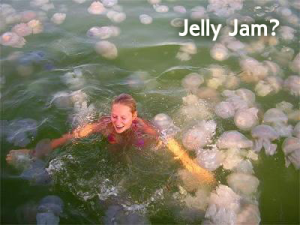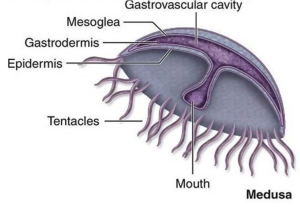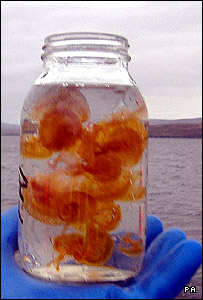I have been a frequent traveller since I was a small child and have always enjoyed a dip in the sea but it wasn’t until 2011 that I had my first unfortunate encounter with a jellyfish. I had found a beautiful cove in Southern Italy and took to the water without a second thought only to find I was sharing the Mediterranean with a sizable bloom of jellyfish. I decided to beat a hasty retreat but was immediately stung by one of these rather primitive looking creatures and boy can they pack a punch! I felt like I had been attacked with a cattle prod or a branding iron and it wasn’t an experience that I wanted to repeat.
Safely back on the shore I marvelled at the sheer number of jellyfish in the water and wondered where they had come from. I had travelled in the region during my childhood and hadn’t seen a single example then. Further forays into the waters along the Amalfi Coast revealed that the creatures were everywhere and if I wanted to swim I was going to have to risk being stung again. As the burn from the first episode took three months to heal that would not have been a good thing!
I now read that Jellyfish are even on the increase around British shores. I am glad that I discovered this fact after a recent trip to the Dorset coast or I might not have been prepared to brave a swim. I am now left wondering if people are going to be banished from the oceans by the jellyfish and if there is anything that can be done to reduce their numbers.
Scientists are not in agreement on the cause of the jellyfish invasion. Some cite global warming as the problem as jellyfish thrive in warmer waters and others blame pollution in our oceans. Pollution leads to more algae which diminishes oxygen levels. This is detrimental to marine life generally but helpful to jellyfish. It has also been suggested that over-fishing may have played a role as a reduced numbers of predators has helped the little stingers prosper. I will think hard before I get my sea fishing tackle out again! Whatever the truth is it looks like humans have been the authors of the problem.
Solutions
Perhaps our attempts at reducing global warming will eventually have some effect on the jellyfish population and for many reasons it is certainly time to do something about over-fishing and pollution but these are global issues which will take generations to deal with. You may also use the information from this source to help out with the fight against climate change and global warming.
Meanwhile holiday takers may have to accept that they are unable to swim safely in many regions. Apparently swimming is already confined to just 15 days each summer at one Spanish beach such is the volume of jellyfish in the coastal waters.
One trend which might help the situation is the Chinese taste for eating jellyfish. The Chinese already harvest and export the creatures and now immigrants in Sicily have begun to harvest them too. It appears that if we are going to fish for something it ought to be jellies especially as scientists now believe that at least one species may be a source of material for use in cancer treatments. So jellyfish aren’t all bad after all!
Sally Stacey is a frequent traveller who is getting tired of arriving at beautiful beaches only to find that the jellies have got there first.








